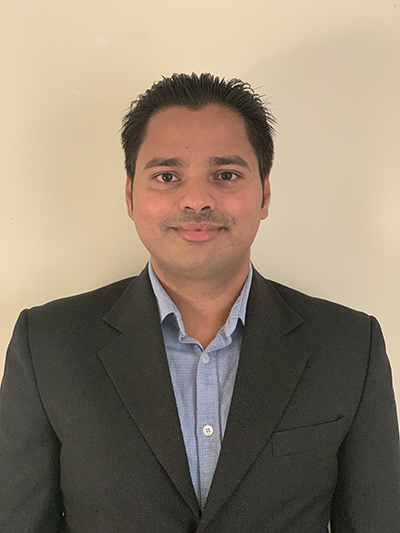Media Contact: Yvonne Taunton
 Vineeth Vijayan, Ph.D.Vineeth Vijayan, Ph.D., a postdoctoral fellow in the Department of Material Science and Engineering and Department of Physics at the University of Alabama at Birmingham, has received the Alexander von Humboldt fellowship.
Vineeth Vijayan, Ph.D.Vineeth Vijayan, Ph.D., a postdoctoral fellow in the Department of Material Science and Engineering and Department of Physics at the University of Alabama at Birmingham, has received the Alexander von Humboldt fellowship.
The Alexander von Humboldt fellowship is a prestigious sponsorship for postdoctoral and experienced researchers of all nationalities. The program enables researchers worldwide to conduct their chosen research project in Germany. The fellowship lasts from six to 24 months, during which researchers receive monthly stipends.
Vijayan says the Alexander von Humboldt Foundation’s lifelong career support for its researchers inspired him to apply.
“Any Humboldtian who joins this prestigious foundation can benefit from lifelong sponsorship and other benefits of the AvH foundation, which is unique,” Vijayan said. “At the early stage of my research career, I firmly believed that such a prestigious fellowship would help me accomplish my career goal of securing a faculty position in an esteemed organization.”
With a success rate of 25 percent, the Alexander von Humboldt Fellowship is a highly competitive program whose selection committee comprises academics from all fields of specialization.
Vijayan says it took six months to complete his research proposal and 12 revisions before applying for the Humboldt fellowship. He advises anyone interested in the fellowship to follow a systematic preparation and remain diligent toward a goal.
“They make independent decisions based solely on the applicant’s academic record,” Vijayan said. There are more than 30,000 Humboldtians worldwide, of whom 56 are Nobel laureates.”
“I want to thank my postdoctoral mentors at UAB, Dr. Vinoy Thomas and Dr. Yogesh Vohra, for their invaluable support throughout my tenure at UAB,” Vijayan said. “Also, thanks to my friend Dr. Shivaram Selvam for his support during the fellowship application period.”
Vijayan will live in Germany for two years and conduct research on implantable bioelectric devices. He will work with Pavel Levkin, Ph.D., a professor at the Karlsruhe Institute of Technology, and Levkin Research Group — a renowned group in polymers and surface chemistry. KIT is a renowned research university and member of the largest scientific organization in Germany, the Helmholtz Association of German Research Centres.
“My research aims to develop novel hydrogel formulations that could potentially embed bioresorbable electronic devices,” Vijayan said. “The hydrogel may provide a biocompatible interface between the tissues and electronic components. It can help track the biodegradation characteristics of the device inside the body in a non-invasive manner.”